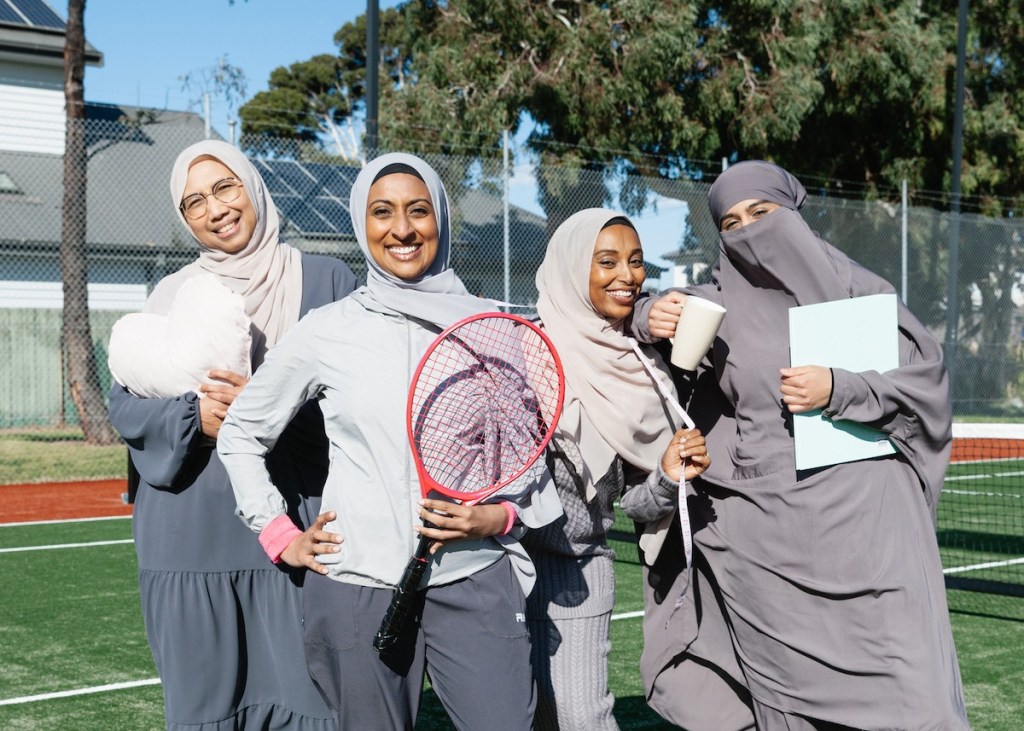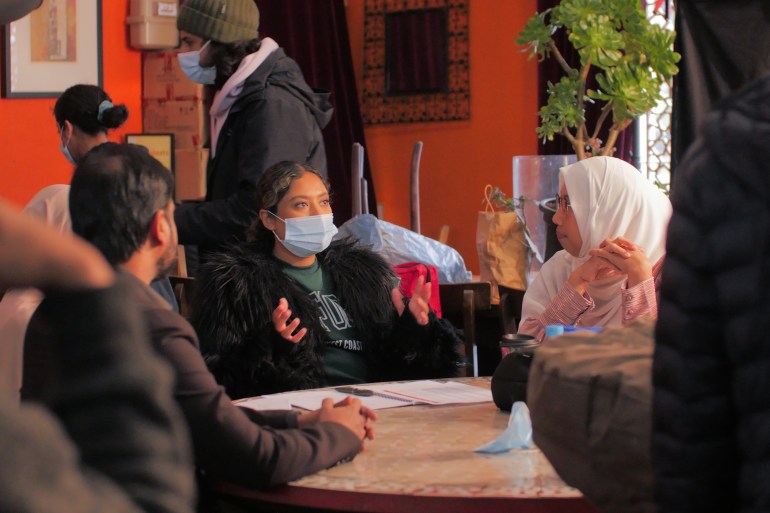When writer/director Kauthar Abdulalim migrated to Australia from Kenya with her family as a teenager, one of the first activities she participated in outside of high school was tennis lessons at Melbourne’s North Sunshine Tennis Club.
A few months ago, the filmmaker returned to the site to shoot Salma’s Season. The 6 x 5-minute comedy-drama series follows a 45-year-old Australian-Pakistani woman who rebels against her roles as a dutiful wife and doting mother to chase her dream of playing at the Australian Open grand slam tennis championship.
Abdulalim, who is of East-African and South-Asian heritage, hoped the full circle moment would provide some comfort to her mother, who initially had designs on her daughter becoming “the next Serena Williams”.
“I told my mum, ‘I know I don’t play tennis anymore but I have made a series about it’, so that should compensate,” she said.
Filmed across ten days in August, Salma’s Season stars Faryaal Jabbar in the titular role with Seble Girma, Pudak Nayati, and Lyeba as her friends Nur, Maryam, and Zoya, respectively, and Bryan Hynes as her tennis coach, Brod.
The series not only charts Salma’s attempts to realise her dream of playing in the Australian Open but also details the journeys of her social circle as they overcome the prejudices they encounter as Melbournian Muslim women, both in their own communities and in broader society.
Abdulalim, who produced the series with Sher-Li Tan and supervising producer Lucy Maclaren, came up with the idea five years ago after hearing her aunt express her excitement about becoming a part-time tutor.
“She said that when she was in Kenya before she got married, she was on her way to achieving her dreams but after her wedding, she moved to London and everything changed for her,” she said.
“Twenty years later, she said she was excited because it felt like she was in her element again, so that’s how it kind of started.”

In developing the concept, Abdulalim worked closely with not-for-profit screen diversity organisation Cinespace, first via the Film Victoria-supported Story Lab mentorship program in 2018, and then earlier this year as the first filmmaker to take advantage of its production-in-residence program, for which the project had access studio space in Footscray, as well as equipment hire and discounted props.
As part of the residence, she benefitted from mentorship with Blackmagic Design, and a session with Post Lab IO, who assisted with post-production.
Support for Salma’s Season has also come in the form of funding from Screen Australia, in association with Vicscreen, both of whom provided support for Abdulalim’s previous TikTok series #Matched.
Abdulalim paid tribute to Cinespace for being an integral part of her journey as a filmmaker and for providing the 50-strong production with a physical space to meet.
“Having a place where we could do our meetings, costume and make-up trials, as well as rehearsals, was really important,” she said.
“Throughout the development, everyone had been working remotely, so to have a physical space to come together was a huge asset to the production.”
With the final episode of Salma’s Season premiering on YouTube today via international distributor Vidly, Abdulalim is hoping to carry momentum from the series into her other projects in development, which include a dark comedy that explores themes surrounding death, as well as a feature film concept.
She also hasn’t ruled out returning to taking a deeper dive into the world of Salma and her friends.
“Initially, the scripts I had were about 15 pages per episode and even then it was a struggle to delve into those relevant and serious themes I explored,” she said.
“In bringing it down to five minutes per episode, there was so much more that we had to pull out just to keep it contained.
“I think each character could have their own series focusing on their own journey and issues.”


